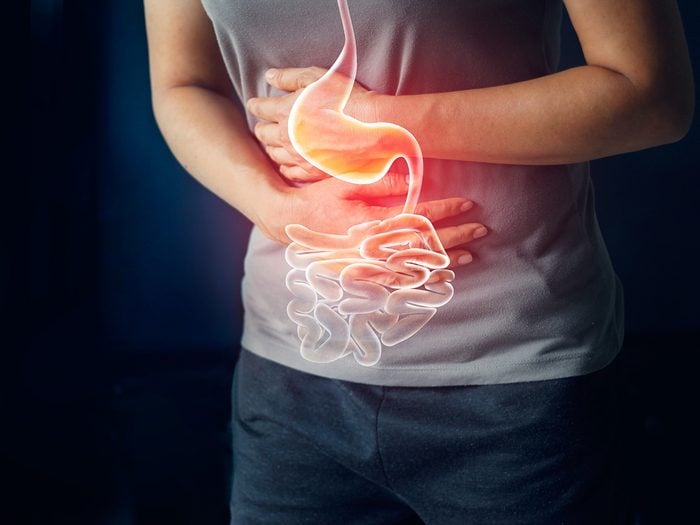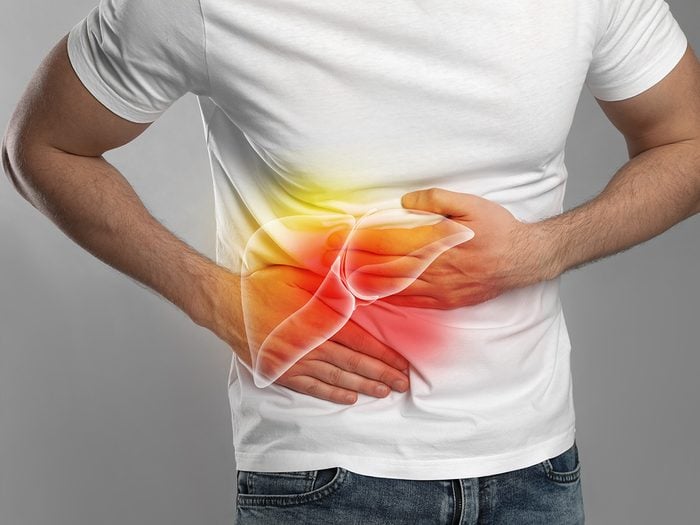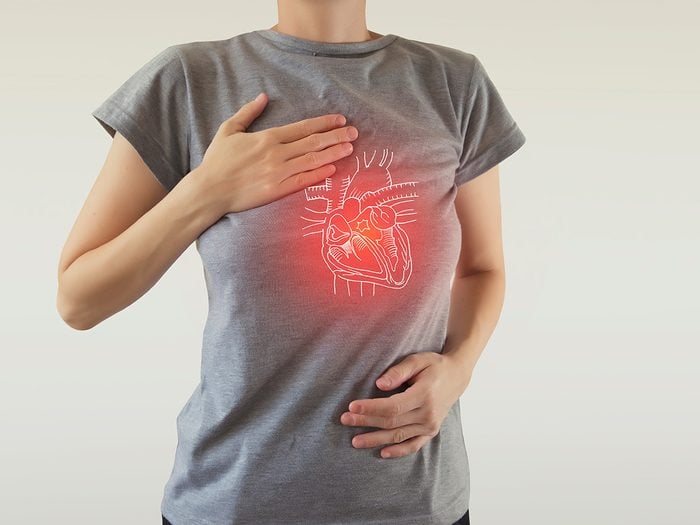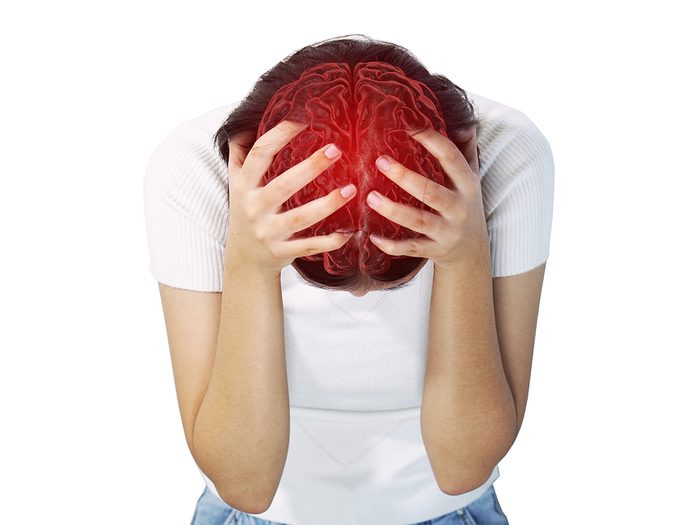
A Sobering Look at the Effects of Alcohol
The risks of heavy drinking have been widely understood for decades. But modest alcohol consumption—a glass of wine or beer a day, or a shot of liquor—has long been thought of as harmless. Or in the case of red wine, even beneficial. Red wine has been cited as a potential health booster because of an ingredient called resveratrol, which is thought to have powerful antioxidant and anti-inflammatory properties that can help protect against cancer, arthritis and other diseases. But growing evidence suggests that having a drink a day might not be so benign after all.
A 2018 study published in the medical journal The Lancet looked at drinking patterns and health in millions of people—including men and women—from 195 countries. The researchers reported that having a drink a day can be modestly beneficial for preventing heart attacks, but that was outweighed by heightened risks of stroke, aortic aneurysm and heart failure. Overall, the study found that health risks rose with the amount of alcohol consumed. People who had one alcoholic drink a day had a higher risk of developing one of 23 alcohol-related health problems than non-drinkers. With two drinks a day, the risk rose by seven per cent. “The safest level of drinking is none,” the study’s authors concluded.
“The health halo around moderate drinking has definitely slipped off,” says Tim Naimi, director of the Canadian Institute for Substance Use Research. For starters, Naimi points out, alcohol is a known carcinogen. There is strong evidence that drinking booze—even just a drink a day—increases the risk of a variety of cancers, including in the liver, breast, mouth, throat and colon. Recent studies have found other negative health impacts, as well.
So what are the effects of alcohol on the body? The results are grim. Here’s exactly what happens when you drink.

Alcohol Disrupts Your Digestive System
As you tip back your glass, sending the alcohol down your throat, the first place it goes is to your gut. Once it reaches your digestive system, alcohol begins seeping through your stomach and intestinal wall lining and into your bloodstream. How quickly the effects of alcohol are felt partly depends on how much food is in your belly. It can take up to 90 minutes for a drink to get fully into your blood if you’ve just eaten a big meal, which slows alcohol from reaching the intestines, where most absorption occurs. But on an empty stomach, a shot of booze can pass into your blood in less than 30 minutes.
When alcohol reaches your stomach, it triggers the release of digestive enzymes. The enzymes that break down alcohol tend to be highly acidic—almost as much as battery acid. Like salt water on a ship’s hull, these enzymes—along with alcohol itself—can gradually wear away your stomach lining and make it inflamed and painful (a condition known as gastritis) and cause acid reflux. Over months and years, this can lead to ulcers—blister-like sores that can be excruciating—in your stomach and intestinal lining. These effects, however, tend to be associated with more excessive consumption, typically defined as more than eight drinks a week for a woman and 15 for a man.
For the drink-a-day person, a more likely risk is disruption to the gut’s biome. Your stomach contains a complex community of microscopic organisms—billions of them—that break down the food and drinks you consume, providing the nutrients and calories your body needs. The acidic response triggered by alcohol can cause an imbalance: too much of some bugs and not enough of others. Studies have shown that this can eventually lead to difficulty absorbing nutrients, a weakened immune system and even depression. If the one drink you have today is red wine, the polyphenols it contains can help maintain a healthy gut—but you can get the same amount from a cup of black tea or a handful of blueberries.
Long-term alcohol consumption—even just a moderate amount—also heightens the risk of cancer. Twenty per cent of new colon-cancer cases in Canada have been linked with alcohol consumption, based on 2020 data. Acetaldehyde—a by-product created when alcohol is metabolized—can damage colon cells’ DNA and allow a cancerous growth to take hold. The result can be gruesome, if not fatal: bloody stools, severe constipation and, in many cases, invasive surgery to remove a portion of the colon.

Alcohol Wrecks the Liver
The liver is a football-sized treatment plant for blood. It breaks down and filters out harmful substances and makes proteins, enzymes and hormones the body uses to ward off infections. It also converts vitamins, nutrients and medicines into substances our bodies need.
When it comes to booze, the liver processes and removes over 90 per cent of the alcohol we consume. It does this using specific enzymes that convert alcohol into acetate—essentially vinegar—which is non-toxic. The rest exits the body directly via urine, sweat and breathing. Typically, the liver can process about one drink per hour. More than this and your liver is likely unable to keep up. The excess alcohol will then accumulate in your blood and you’ll begin feeling, well, drunk (intoxication is usually measured by blood-alcohol content). Interestingly, women typically have less dehydrogenase—a liver enzyme that breaks down alcohol—than men. So a woman’s body, by virtue of genetics, will break down alcohol more slowly than that of a man.
Over the longer term, excessive drinking can cause a host of liver ailments, including a buildup of gelatinous fatty deposits, reddish swelling of the tissue and a breakdown of functional cells. Eventually, hard scar tissue permanently replaces healthy tissue—a condition known as cirrhosis—which can lead to liver failure and cancer. (Here are the signs of liver cancer you might be ignoring.)
Moderate drinking poses a much lower risk to your liver but can still have potential impacts. Simply put, every time you consume alcohol, you are making your liver work, which can eventually take its toll. It can also inhibit the liver from performing its other vital functions, such as producing proteins and nutrients. A U.K. study found that a drink-a-day habit poses an even higher risk to one’s liver than occasional binge drinking (consuming five or more drinks in one event).

The Effects of Alcohol on the Heart
When alcohol reaches the bloodstream, blood vessels relax and dilate. This, in turn, lowers blood pressure, causing the heart to beat faster in order to maintain enough blood flow to other organs. You might suddenly feel warmer, and your cheeks might flush as blood rushes into the capillaries in your skin. But what about the longer-term effects of alcohol on the heart?
Let’s start with what’s known for certain: heavy drinking is harmful to our cardiovascular system. Consuming more than 15 drinks a week for men, or eight for women, can lead to high blood pressure, an irregular heartbeat and heart failure or stroke. The toxicity of alcohol can also, over time, weaken the muscles of the heart, leading to a condition known as cardiomyopathy, in which the organ stretches and droops—picture a partly deflated balloon—and struggles to pump blood. This can eventually lead to heart failure.
The effects of moderate drinking are where things get murkier. For many years, researchers linked moderate drinking with better heart health. One example of this is known as the “French Paradox.” Since the 1980s, low rates of heart disease have been observed in French people, despite a typical diet that includes many rich, fatty foods. The phenomenon was initially explained by consumption of red wine in France—particularly an ingredient called resveratrol, which is found in grapes and, as noted earlier, is thought to be a powerful antioxidant.
The amount of resveratrol in wine, however, is relatively small—likely not enough to make a difference. Studies on animals suggest that as much as 500 milligrams of resveratrol might be needed to provide any measurable health benefits. To get that amount, you’d need to drink a whopping 40 litres of wine daily. Instead, most researchers now believe that the low rates of heart disease in France—and among wine drinkers in general—are due to other lifestyle factors, such as greater physical activity or higher socioeconomic status, and not a love of vin.
There are certain groups of people who seem to benefit from moderate drinking—those recovering from a heart attack, for example, have been
shown in some studies to live longer if they have an occasional drink. A possible reason for this is that alcohol consumption can increase the level of high-density lipoproteins, often referred to as “good cholesterol,” which may protect against heart disease. Still, organizations like the World Cancer Research Fund strongly caution against the idea that a drink a day can be good for the heart. The risks, their research shows, outweigh the benefits.
Find out how it’s actually possible to reverse heart disease.

The Effects of Alcohol on the Brain
For most moderate drinkers, the perceived effect of alcohol on the brain is positive: they feel happier, less stressed, more social. There’s a reason for that: brain-scan images have shown that alcohol triggers the release of endorphins—“feel good” hormones—in our brain. These same endorphins are released when having sex or eating chocolate; they help reduce anxiety and make us feel, well, better.
But that euphoric feeling is only part of the story. Alcohol has another effect on your brain: it slows it down. This is why alcohol is considered a depressant. It interferes with the brain’s millions of communications pathways, known as neurons, and bogs down or misdirects signals. Think of your frontal lobe as a switchboard operator suddenly struggling to keep up. With too many drinks, it leads to the slurred speech, stumbling and clumsiness that drunk people display.
Over time, heavy drinking can cause permanent damage to brain cells and the neural pathways that connect them. The result is poor concentration, judgment, mood and memory. It can eventually lead to stroke and dementia (a 2018 study found that heavy drinking roughly tripled the risk of dementia). The effect that even a cocktail or two a day can have might surprise you. A recent study showed that modest amounts of alcohol can, over time, reduce brain volume: simply put, drinking can shrink your brain.
A study published earlier this year in the journal Nature compared the reduction of brain volume caused by drinking to early aging in terms of cognitive decline. The study, which was based on participants’ drinking habits over the previous year, found that the reduction in brain volume was roughly proportional to the amount of alcohol regularly consumed. For example, people aged 50 who drank a pint of beer a day had brains that appeared two years older than those who abstained.
Learn how to spot the early signs of dementia.

Alcohol Paralyzes the Immune System
Our immune system is made up of white blood cells, antibodies, the lymphatic system, the spleen, thymus and bone marrow—all of which can be disrupted by alcohol. Normally our white blood cells move quickly to the site of an infection or injury to fight off viruses and bacteria. But with alcohol in the bloodstream, those cells are slower to mobilize—like an army of inebriated, bumbling soldiers. The result is a weaker immune response and greater susceptibility to inflammation and infections.
Another way that alcohol affects our immune system is through our gut. As we’ve learned, alcohol disrupts the complex community of micro-organisms in the stomach known as the microbiome. Those bugs are critical to our immune functions. For example, your gastrointestinal tract produces epithelial cells, which are sometimes referred to as our body’s “safety shields.” These cells cover our skin and the lining of our throat, intestines, blood vessels and all of our organs. They’re our first line of defence against viruses and bacteria. But the effects of alcohol can damage production of these important cells and leave us more susceptible to getting sick. For example, people who abuse alcohol are 10 times more likely to develop pneumonia, according to the U.S. Centers for Disease Control and Prevention.
Most research linking immune response with alcohol has focused on excessive drinking. The effects of moderate consumption are less clear. Nevertheless, at the onset of the COVID-19 pandemic, the U.S. surgeon general warned at-risk adults to stop drinking altogether. Soon after, the World Health Organization recommended cutting back on drinking, explaining that the diseases and mental health disorders caused by alcohol make a person more vulnerable to COVID-19.
Here are eight science-backed ways to boost your immune system.

It Leaves You Impotent
Shakespeare once wrote that alcohol “provokes the desire but takes away the performance.” Modern science backs the Bard up. Booze might seem like an aphrodisiac, but it can actually have the opposite effect on your body—especially if you drink too much.
It’s been shown that a bit of alcohol can lower inhibition, raise confidence and increase arousal—for both men and women. But beyond a drink or two, those benefits are outweighed by the negative effects. Alcohol reduces blood flow, slows the central nervous system and takes away libido—all of which are detrimental to sexual performance and can cause erectile problems and difficulties reaching an orgasm. (Here are 13 sexual health tips your urologist wants you to know.)
Over the longer term, excessive alcohol consumption can wreak havoc on sexual health. For men, booze can reduce the body’s production of an enzyme called NAD+, which is a building block for testosterone, an important sex-drive hormone. Most alcoholic drinks also contain a chemical called phytoestrogen, which might increase the level of the female sex hormone estrogen in heavy drinkers. For men, higher estrogen means lower sex drive and performance, as well as a reduced sperm count. Alcohol can have detrimental effects on women’s sexual health, too, limiting fertility and reducing overall desire for sex. A study of 133 women published last year found that moderate drinkers were 44 per cent less likely than non-drinkers to get pregnant.
Now that you know the effects of alcohol on the body, find out how to improve gut health in 10 simple steps.